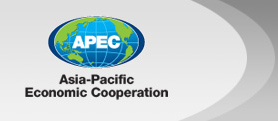APEC economy: Canada; Jurisdiction: Ontario
Temporary practice ('fly-in, fly-out' practice)
There is no express rule allowing temporary practice by foreign lawyers.
Limited licensing of foreign lawyers (foreign legal consultant rules)
A foreign lawyer may obtain a limited licence, referred to as a “permit”, entitling them to offer advisory services in foreign and international law (ie become a foreign legal consultant).
By-law 14 made under the authority of the Law Society Act regulates the granting of an FLC permit.
Foreign lawyers may only apply if the jurisdiction in respect of the law of which he or she wishes to give legal advice has provisions respecting the giving of legal advice by a licensee in that jurisdiction respecting the law of Ontario or Canada that are reasonably comparable to the Ontario provisions. In order to meet the requirements a foreign legal consultant must:
- be authorized to practise law in the foreign jurisdiction;
- not be the subject of any order made by a tribunal of any governing body of the legal profession in the foreign jurisdiction in which the person is authorized to practise law;
- not have any terms, conditions, limitations or restrictions imposed on their authorization to practise law in the foreign jurisdiction;
- be of good character;
- have been lawfully engaged in the practice of law in the foreign jurisdiction for a period totalling at least three years within the five-year period immediately before the person applies for a permit or work under the direct supervision of a foreign legal consultant or member of the law society authorized to practise the law of the same foreign jurisdiction;
- have professional liability insurance for the giving of legal advice in Ontario respecting the law of the foreign jurisdiction which is at least equivalent to that required of a licensee for the licensee’s practice of law in Ontario;
- renew the permit annually; and
- must notify the Society immediately if fail to comply with the continuing legal education requirements of any governing body of the legal profession in the jurisdiction in which the person is authorized to practise law.
As to scope of practice, foreign legal consultants may only practise the law of the jurisdiction(s) where they are licensed, and are prohibited from handling trust monies. FLCs cannot provide legal advice or services regarding the law of Ontario unless they are also members of the Law Society of Upper Canada.
In order to offer advisory services in foreign and international law, a foreign legal consultant is not required to enter a commercial association with local lawyers.
Full licensing
A foreign lawyer can obtain a full licence to practise law in this jurisdiction.
The relevant legislation is the Law Society Act and the Law Society By-laws.
In order to obtain a full licence to practise law in this jurisdiction, foreign lawyers must apply to the National Committee on Accreditation for evaluation of the legal credentials and experience, in the same manner as for other online casino Canadian jurisdictions. Once the foreign lawyer obtains the NCA certificate he or she may apply to enter Ontario’s licensing process.
Commercial association between lawyers and law firms
In this jurisdiction:
- local lawyers may be employed by another local lawyer of a local firm;
- local lawyers may not be employed by a foreign lawyer or foreign firm if the foreign firm or lawyer only practices foreign law;
- foreign lawyers may provide services in some other form of commercial association with local lawyers;
- foreign firms are permitted to establish a commercial presence (a permanent office) to offer advisory services in foreign and international law;
- foreign firms are permitted to enter into commercial association with local lawyers or law firms.
Other regulatory issues
In this jurisdiction:
- foreign lawyers cannot establish an office in the absence of enabling legislation;
- there are specific rules in relation to advertising. They are found in the Rules of Professional Conduct - Rules 3.02 and 3.03;
- there are no specific rules in relation to use of names by lawyers or law firms.
Contacts
| Category | Name | Website or other contact details |
|---|---|---|
| Organisation(s) that controls licensing of lawyers | The Law Society of Upper Canada | www.lsuc.on.ca |
| Peak professional association representing the legal profession | Ontario Bar Association | www.oba.org |
| Other associations playing a significant role in developing policy for the legal profession | Federation of the Law Societies of Canada | www.flsc.ca |
Other issues
In Canada, regulation of the legal profession is the exclusive responsibility of the Provincial and Territorial Law Societies. Law Societies are mandated by provincial law and territorial legislation to regulate the profession in the public interest. This includes setting rules governing admission to the profession. As such, the regulation of foreign lawyers who wish to practise in Canada is governed by the rules of the individual Law Societies. Law Societies are not representatives of, or advocates for, the profession. That role is fulfilled by organisations such as the Canadian Bar Association and its branches.
